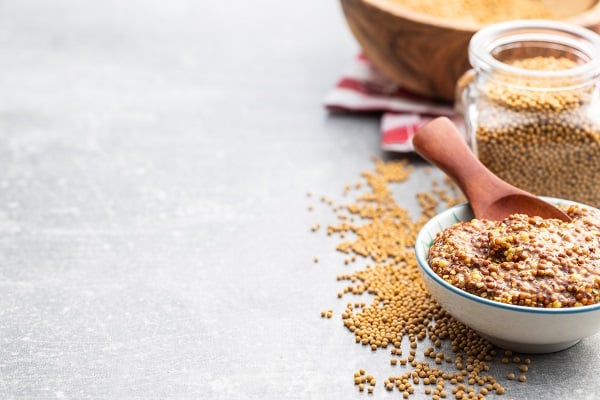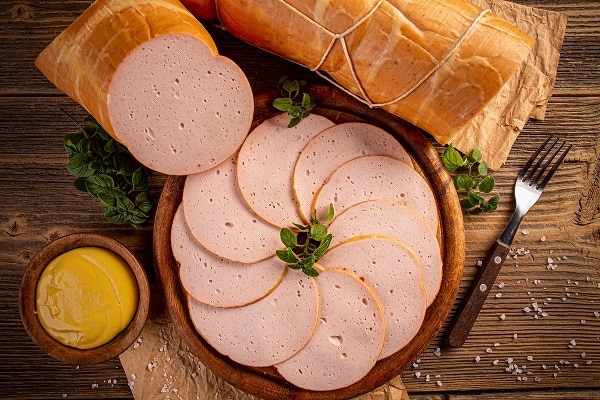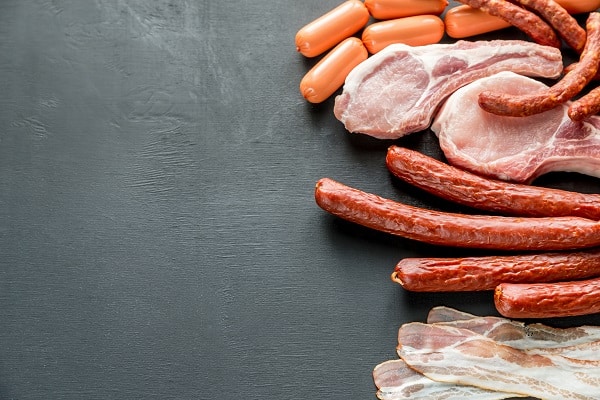When you’re trying to conceive, every aspect of your lifestyle comes under scrutiny, especially your diet. As it turns out, certain foods and nutrients can increase your fertility, making your journey to parenthood smoother. This blog post explores these fertility-friendly foods and also highlights some to avoid, providing a comprehensive guide to nourish your body optimally during this pivotal period.
Contents
Best Foods To Eat When Trying To Conceive
In this section, you’ll learn about the foods you should include in your diet when trying to conceive.
Leafy Green Vegetables

When it comes to fertility-boosting foods, leafy green vegetables like spinach, kale, and broccoli deserve a prominent place on your plate. They are high in folic acid, a B vitamin essential for healthy ovulation and preventing neural tube defects in early pregnancy. The importance of folic acid in the pre-conception phase can’t be stressed enough, as it plays a crucial role in creating a healthy environment for your baby.
But leafy greens aren’t just about folic acid. They are also a rich source of antioxidants, which combat oxidative stress that could potentially compromise egg and sperm quality. Consuming a variety of leafy green vegetables can, therefore, improve the fertility of both partners, making it an intelligent dietary choice for those planning to have a baby.
Fatty Fish

The beneficial role of fatty fish in enhancing fertility can’t be overlooked. Varieties like salmon, mackerel, and sardines are teeming with Omega-3 fatty acids. These essential fats are pivotal in hormone regulation and enhancing blood flow to the reproductive organs, thus positively influencing fertility. Omega-3’s also improve the overall quality of sperm, giving a significant boost to male fertility.
Omega-3 benefits extend to females too. Regular consumption of fatty fish can aid regular ovulation, enhancing chances of conception. Nutritionists typically recommend at least two servings of fatty fish per week to gain the fertility benefits that these nutrient-packed swimmers offer.
Green Tea

Green tea, long revered for its health-boosting properties, can be a wise addition to a fertility diet. It’s rich in antioxidants that promote general health and specifically support reproductive health by combating inflammation and protecting body cells from damage.
However, while green tea holds fertility-enhancing potential, remember that moderation is key. Although it contains less caffeine than coffee, overconsumption could still hamper fertility. Therefore, sticking to a limit of one to two cups a day strikes the right balance, offering antioxidant benefits without overdoing the caffeine.
Whole Grains

Whole grains such as brown rice, oats, and quinoa are an indispensable part of a fertility-friendly diet. These nutrient-rich foods provide complex carbohydrates that are digested slowly, thus ensuring a steady energy release and stable blood sugar levels. This slow release helps regulate the menstrual cycle, a critical aspect of female fertility.
Whole grains do more than just regularize cycles. They are rich in dietary fiber which can aid in weight management. Maintaining a healthy body weight is crucial for fertility in both men and women. So, making a conscious switch from refined to whole grains is an advisable dietary change for those planning to conceive.
Foods To Avoid When Trying To Conceive
In this section, you’ll find out all about the foods to avoid when trying to conceive.
Processed Meats

As you plan your fertility journey, it’s crucial to review your dietary habits, especially when it comes to processed meats. Foods like sausages, bacon, and hot dogs, despite their palatability, contain preservatives and other additives that can interfere with hormonal balance and overall fertility. Alarmingly, studies have linked excessive consumption of these processed meats with reduced fertility in men.
Rather than indulging in these convenient, but potentially harmful options, prioritize lean, unprocessed protein sources such as chicken, turkey, or even fish. Not only are these alternatives typically more nutrient-dense, but they can also positively influence your overall health and fertility, laying the groundwork for a healthier conception and pregnancy.
Trans Fats

Trans fats, hidden in processed foods, fast food, and many commercially baked goods, can sabotage your efforts to conceive. Consuming these harmful fats can increase the risk of ovulatory infertility by inducing insulin resistance and systemic inflammation. Additionally, trans fats can negatively impact sperm quality, further dampening fertility prospects for men.
The recommendation is clear: when trying to conceive, be proactive in limiting your intake of trans fats. Reading food labels carefully and focusing on whole, unprocessed foods can help you sidestep these unhealthy fats. Prioritize sources of healthy fats.
Caffeine And Alcohol

While enjoying a cup of coffee or a glass of wine may be part of your daily routine, it’s important to consider their potential impacts on fertility when trying to conceive. High levels of caffeine and alcohol can adversely affect both male and female fertility, potentially extending the time it takes to become pregnant.
For caffeine, it’s about striking a balance. Moderate consumption doesn’t appear to affect fertility, but excessive amounts might. As for alcohol, while occasional drinks may not harm fertility, chronic or heavy drinking is linked to reduced fertility and other health problems. Consider limiting intake or, better yet, abstaining, particularly when actively trying to conceive.
Refined Carbohydrates

Refined carbohydrates, found in foods like white bread, pastries, and some cereals, can trigger rapid spikes in blood sugar and insulin levels, leading to hormonal imbalances that could impair fertility. Furthermore, these refined carbs contribute to weight gain and obesity, both of which can negatively impact fertility.
It’s advisable to substitute refined carbohydrates with whole grains, which provide slow-releasing energy, helping to regulate blood sugar levels and support a healthy menstrual cycle. Prioritizing whole foods can aid in weight management and promote general well-being, both of which are advantageous when preparing for pregnancy.
Enhancing Your Ability To Conceive With A Balanced Diet
In essence, the path to parenthood is significantly impacted by your dietary and lifestyle choices. Emphasizing a diet rich in leafy greens, fatty fish, and whole grains, while reducing the intake of processed meats, trans fats, and refined carbohydrates can help boost your fertility. Being mindful of your caffeine and alcohol consumption is also vital when preparing for conception.
Remember, a balanced, nutrient-rich diet is key in creating an optimal environment for conception. Maintaining a healthy lifestyle with regular physical activity, ample sleep, and stress management complements a fertility-friendly diet. Think of this phase as a chance to nourish your body for the amazing journey of parenthood ahead. By adopting a balanced diet and healthy lifestyle, you’re setting the stage for a successful and enriching conception journey.


